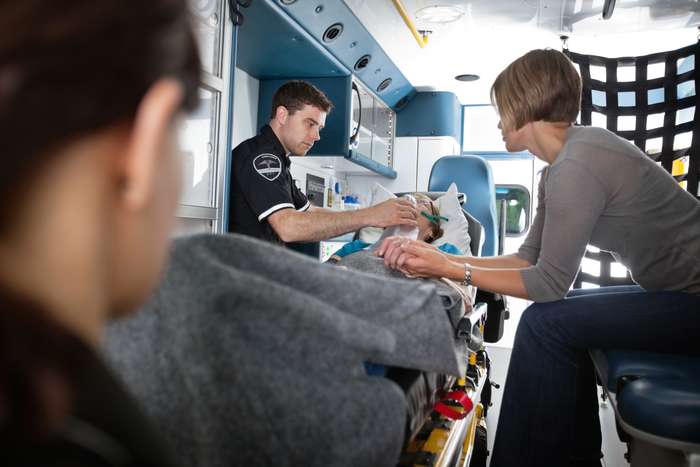
Anyone who works in healthcare can attest to the fact that our population is aging. Improved treatment regimes, better access to healthcare, and more effective medications mean people are living longer, healthier lives. Elderly patients make up a bulk of emergency calls, and as an EMS professional, you must be alert to the unique challenges they pose.
Here, we’ll discuss two realms of geriatric care. First, we’ll target the general approach to caring for the elderly, and then we’ll focus specifically on suctioning the geriatric patient and some of the complications you can avoid.
Caring for the Elderly Patient
As a prehospital professional, you are in a unique position to evaluate elderly patients. Emergency personnel get a glimpse into the personal lives of their patients, by seeing how and where they live. When you respond to a geriatric patient, observe the patient’s surroundings.
Are their surroundings clean? Do they have electricity and water? Are their surroundings safe and free of dangerous obstacles? Patients on fixed incomes may not be able to afford basic luxuries, like food and utilities, so be sure to take note of their surroundings and report unsafe conditions to hospital social workers or law enforcement.
When treating the elderly, keep in mind that aging affects the body in numerous ways. Pay particular attention to:
- Body temperature: Geriatrics may have trouble maintaining body temperature, so be sure to note if they are too warm or too cold.
- Loss of sensory organs: Speak clearly and loudly to those with hearing deficits and be ready to assist those with visual impairments.
- Loss of mobility: Aging muscles and bones can limit mobility in the elderly. Make sure their homes are free of dangerous obstacles.
- Dementia and senility: Elderly patients may be oblivious to their surroundings, so be attentive to issues of hygiene and safety when tending to these patients.
Suctioning the Geriatric Patient
There are many reasons why geriatric patients may require frequent suctioning. These include:
- Inability to swallow effectively
- Paralysis due to previous strokes
- Dementia or decreased level of consciousness
- Stoma or another fixed airway device
Always have your portable suction unit on hand when responding to geriatric patients. And should they require suctioning, here are some important reminders:
- Be mindful of dental hardware that may come loose and become an obstruction.
- Suction carefully and with precision to avoid damaging fragile oral/nasal tissues.
- Have the appropriate suction catheters on hand to tailor your suction treatment.
- Dial back the suction pressure to avoid trauma.
- Be sure to pad your patient if he or she must be placed in a supine position for suctioning/intubation.
- Loss of flexibility in the neck and jaw may result in difficult airways, so keep a hyper-curved suction catheter on hand for such occasions.
Treating geriatric patients requires special precautions. And one of the most fundamental treatments you may provide is suction. So, approach each elderly patient carefully and cautiously to avoid complications when suctioning.
Editor's Note: This blog was originally published in May 2017. It has been re-published with additional up-to-date content.















